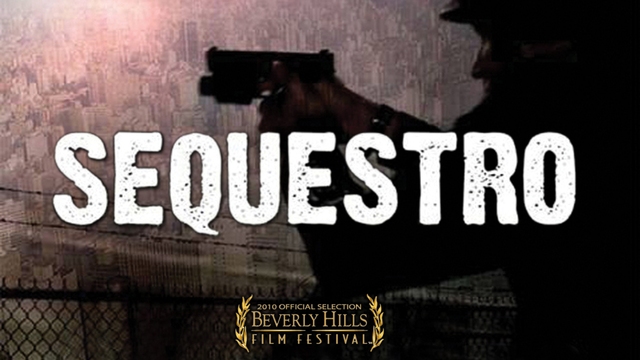In Sao Paulo, kidnapping is an established business - lucrative and hectic. For four years a film crew followed the police department's anti-kidnap division. The film takes a white knuckle ride with the police as they locate houses holding captives, listen in on phone calls, free petrified hostages and bust the kidnappers. Raw, powerful and with incredible access, this edgy documentary confronts one of the biggest problems that Brazil faces today.
The police creep up the stairs, guns pointed. Bang! The door is kicked in and they flood through it into a darkened room. A young man is tied up on the floor. He opens his trembling mouth in disbelief, unable to utter a word.
"You're going home, breathe, relax," they reassure him. He shakes, racked with indescribable emotion. A phone is handed to him.
"Dad, they found me. I love you Dad", he sobs, still shaking uncontrollably. As they drive away from the scene, ever so slowly a smile appears on his face.
Kidnapping has reached crisis point in Brazil, with the number of cases sky-rocketing.
"Put $25,000 in a suitcase", a disturbingly high-pitched voice screeches down the phone.
"I don-t have that much! Please, let me speak to my father", comes the pleading response.
"Screw you, you'll get your father back in pieces." This is the nightmare that all too often becomes a reality in a country gripped by fear of kidnapping.
"You can't imagine what it's like to get those phone calls", shudders the victim's son.
However, the anti-kidnapping squad are equally tough and they track the criminals relentlessly, adopting any tactics they can to free the victims, including taking the kidnapper's family into custody as a bargaining tool.
"My mother is a Christian, man. She's got nothing to do with this", the kidnapper argues.
"I'm not making small talk with a criminal. I want the victim set free", is the inspector's simple reply. A chilling and nerve-wracking journey through the squad's daily highs and lows, this doc will have you on the edge of your seat all the way.

Best Documentary, Beverly Hills Film Festival, 2010
 In Sao Paulo, kidnapping is an established business - lucrative and hectic. For four years a film crew followed the police department's anti-kidnap division. The film takes a white knuckle ride with the police as they locate houses holding captives, listen in on phone calls, free petrified hostages and bust the kidnappers. Raw, powerful and with incredible access, this edgy documentary confronts one of the biggest problems that Brazil faces today.
In Sao Paulo, kidnapping is an established business - lucrative and hectic. For four years a film crew followed the police department's anti-kidnap division. The film takes a white knuckle ride with the police as they locate houses holding captives, listen in on phone calls, free petrified hostages and bust the kidnappers. Raw, powerful and with incredible access, this edgy documentary confronts one of the biggest problems that Brazil faces today.
 Best Documentary, Beverly Hills Film Festival, 2010
Best Documentary, Beverly Hills Film Festival, 2010




